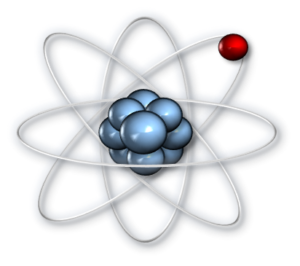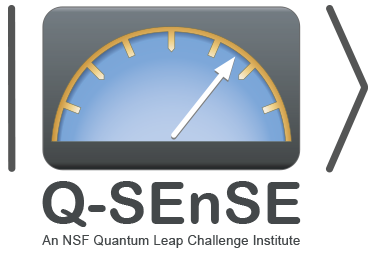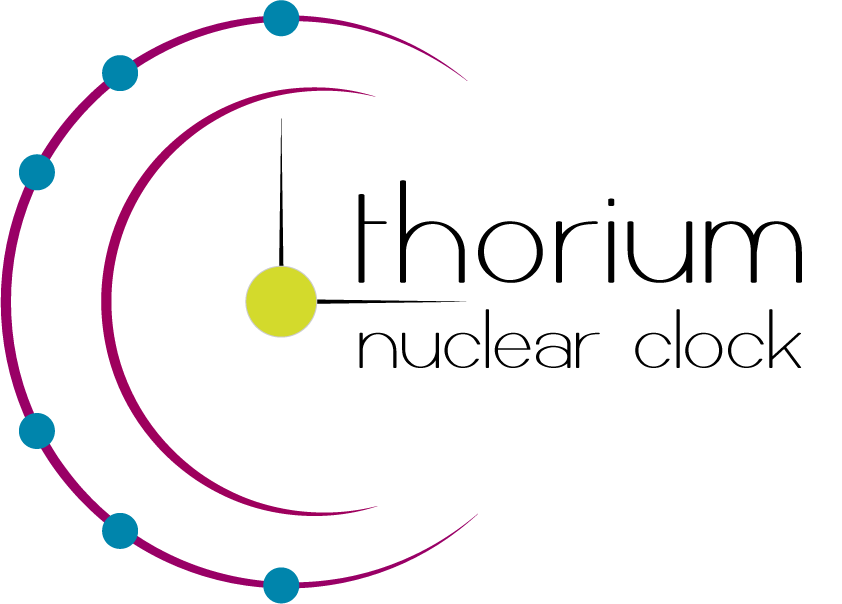The Safronova Group
From quantum computing to dark matter searches
Frontiers of Quantum Metrology for New Physics Searches
Bad Honnef Physics School
Scientific organizers: Prof. Dr. Marianna Safronova (U Delaware), Dr. Naceur Gaaloul (U Hannover)
May 11 – 16, 2025, Physikzentrum Bad Honnef, Germany
Research
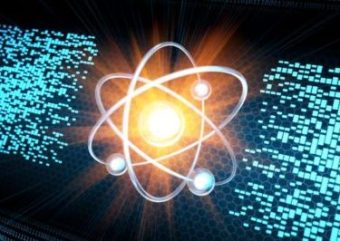
Our group explores a wide range of research topics including applications of quantum technologies to search for physics beyond the standard model of elementary particles and fields, development of atomic and nuclear clocks and their applications, fundamental physics with quantum sensors in space, dark matter searches, ultra-cold atoms and quantum information, studies of fundamental symmetries, quantum many-body theory and development of high-precision relativistic atomic codes, development of the online atomic data portal, highly-charged ions, atomic anions, superheavy atoms, and other topics. Click here to learn more .
Research highlights
Prospects of a thousand-ion Sn2+ Coulomb-crystal clock with
sub-10-19 inaccuracy

We propose a many-ion optical atomic clock based on three-dimensional Coulomb crystals of order one thousand Sn2+ ions confined in a linear RF Paul trap.
Sn2+ has a unique combination of features that is not available in previously considered ions: a 1S0 – 3P clock transition between two states with zero electronic and nuclear angular momentum (I = J = F = 0) making it immune to nonscalar perturbations, a negative differential polarizability making it possible to operate the trap in a manner such that the two dominant shifts for three-dimensional ion crystals cancel each other, and a laser-accessible transition suitable for direct laser cooling and state readout. We present calculations of the differential polarizability, other relevant atomic properties, and the motion of ions in large Coulomb crystals, in order to estimate the achievable accuracy and precision of Sn2+ Coulomb-crystal clocks.
Prospects of a thousand-ion Sn2+ Coulomb-crystal clock with sub-10−19 inaccuracy, David R. Leibrandt, Sergey G. Porsev, Charles Cheung, Marianna S. Safronova, arXiv:2205.15484, Nature Communications, in press, (2024).
Direct detection of ultralight dark matter bound to the Sun with
space quantum sensors
The question of the dark matter distribution in the Solar system critically affects the reach of dark matter direct detection experiments. We show that space quantum sensors present new opportunities for ultralight dark matter searches, especially for dark matter states bound to the Sun. Exceptional enhancements of DM density that can be enabled by bound halos present an opportunity for direct DM detection with clocks.
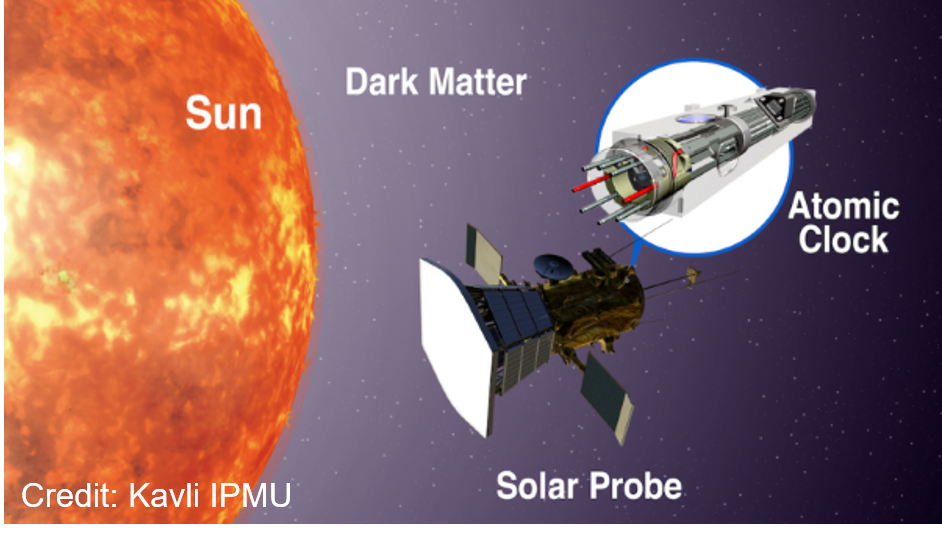
We propose a clock-comparison satellite mission with two clocks onboard to the inner reaches of the solar system, to both search for a dark matter halo bound to the Sun, and look for the spatial variation of the fundamental constants associated with a change in the gravitation potential. We show that the projected sensitivity of space-based clocks for detection of Sun-bound dark matter halo exceeds the reach of Earth-based clocks by orders of magnitude.
- Direct detection of ultralight dark matter bound to the Sun with space quantum sensors, Yu-Dai Tsai, Joshua Eby and Marianna S. Safronova, Nature Astronomy 7, 113 (2023).
Joint projects
High-Precision Atomic Data Portal
We collaborate with Prof. Rudi Eigenmann' s team from ECE, University of Delaware to provide a wide range of atomic data via online portal.
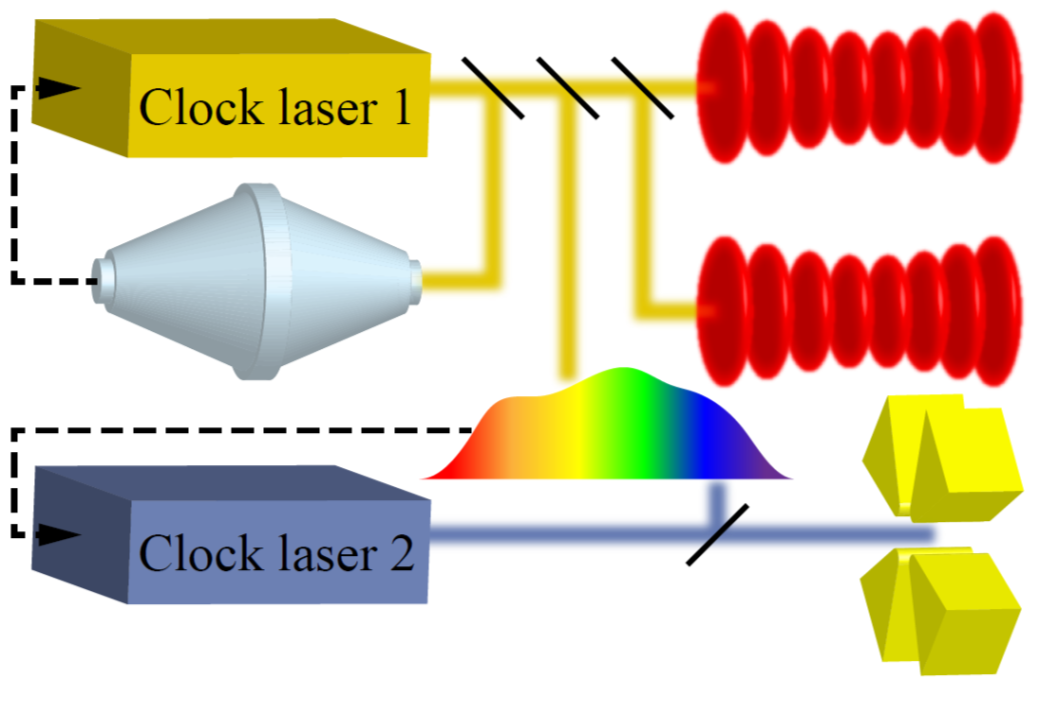
Out team is a member of “QuSeC-TAQS: Novel Quantum Algorithms for Optical Atomic Clocks” project funded by the NSF.
We focus of development of quantum sensing algorithms for dark matter detection.Positions available
Postdoctoral position is available. Email Marianna Safronova at msafrono@udel.edu to apply.

